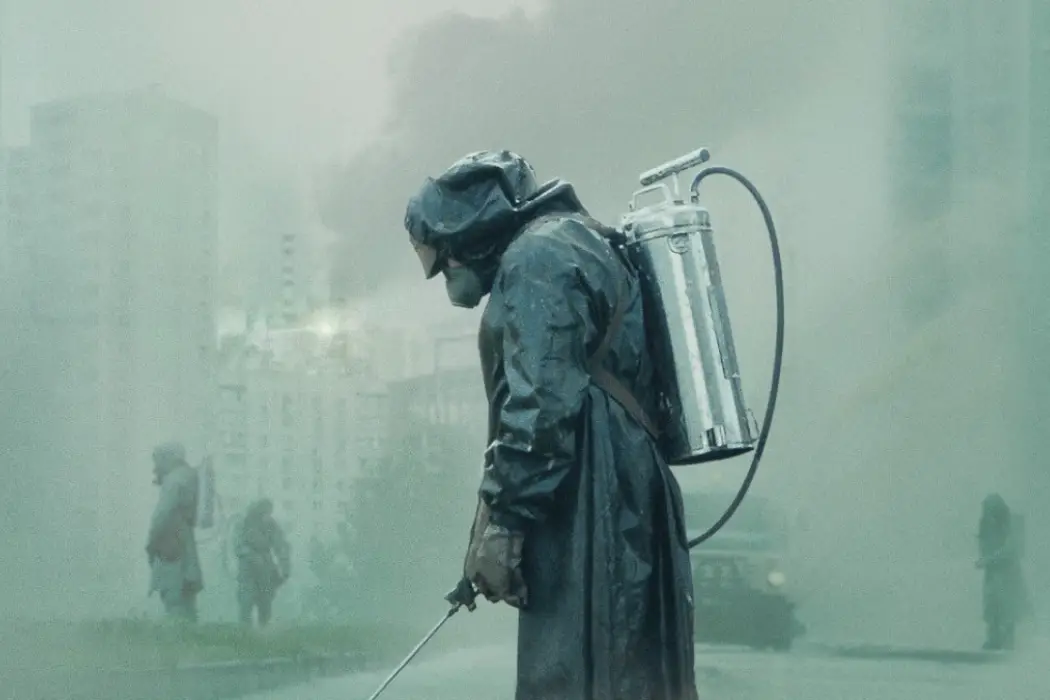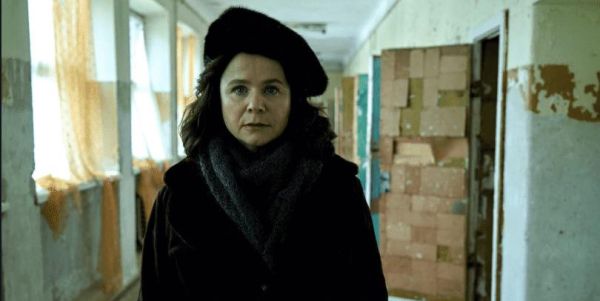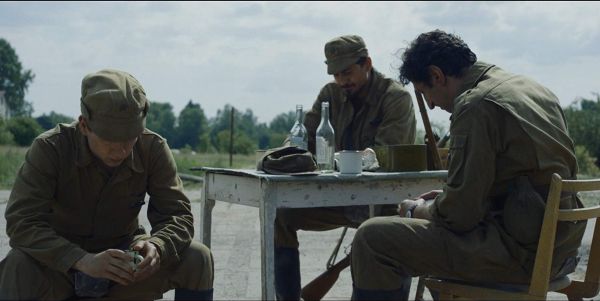CHERNOBYL (S1E4) “The Happiness of All Mankind”: The Aptest Title Of Them All

22. Film Critic and Journalist. Lover of Digital and Celluloid
We have arrived at the penultimate episode of the HBO and Sky Atlantic joint venture Chernobyl mini-series. Written and directed in its entirety by Craig Mazin and Johan Renck, respectively, Chernobyl has finally come into its own, not only contextually has it veered into outstanding immersive TV territory but has also now gained a sizable audience under its belt. It feels undoubtedly repetitive to state but with each episode that occurs after the last, the horror and morbid sensibility of each passing sequence increases tenfold and ‘The Happiness of All Mankind’ is the aptest ironic title of them all. If, like me, you’ve been left haunted and disturbed by the visual elements and direct faults of man in mini-series so far, the fourth episode is the hardest of them all.
Loss, Grief and Purpose
If the last episode surrounded itself about sacrifice for good intention or for bad, episode four follows the significant parameters of loss, grief and purpose. It’s three threads that open Mazin’s Chernobyl into a really immersive character orientated spectacle. While the disaster of Chernobyl is still present throughout (in the last episode in particularly), more so here it takes a step back as a third party of sorts and in its place, the characters and their sordid individual arcs drive it on. The pre-title sequence perfectly sums this entire display and the true scale of this disaster.

The episode opens with an elderly eighty two-year-old female farm hand in Pripyat sitting in her stable milking a cow, behind her a Russian soldier is coercing her to pack up and leave with him and the surrounding villages for safety. She refuses and proceeds to fire off a terrific defiant monologue about multiple times throughout history in which soldiers have come to her with far more venomous agendas and yet she’s stood tall in utter defiance against them all. The woman unwittingly, unlike the audience and the soldier, has no idea about the true devastation that is slowly but surely coming to wipe this community out. The soldier in an act of desperation pulls his gun and fires the trigger. It’s a perfectly written sequence by writer Mazin that showcases the true desperation and gravity of the situation. It terrifically embodies the gloomy atmosphere and truly outlandish scenario in which these soldiers and innocents without much knowledge of what’s truly occurring, of whom are having to disperse from areas they’ve lived in for decades for decades.
This episode terrifically embodies the gloomy atmosphere and truly outlandish scenario in which these soldiers and innocents without much knowledge of what’s truly occurring, are having to act like God. Dispersing innocents from areas they’ve lived for decades upon decades, convincing those of who have their whole lives ahead of them to make decisions that will take two-thirds of their life expectancy away from them. The moral implications of these acts are brilliantly woven into the story via the writing and the resulting performances.

Barry Keoghan as Pavel showcases a stunning embodiment of stoic grief for his actions. Actions in the greater scale that are horrid, yes, but incredibly placid to others who have taken part and orchestrated horrifying acts upon their own kind. His arc is especially devasting and a perfect embodiment of the smaller scale tragedies that occurred – a young impressionable soldier who’s never seen any combat of any form and is dedicated solely to the U.S.S.R. It’s interesting to see his waving of behaviour and the loss of innocence with these necessary acts that he set out to achieve. Keoghan perfectly embodies this sense of honesty and sincerity that much of the volunteers are acting in good intentions with, yet the physical and mental fallout of such devotion is a factor that is waiting in the wings.
Concoction of beautiful visuals and devastating themes
Equally impressive is the end of Lyudmilla Ignatenko’s (Jessie Buckley) saddening and frightful arc. Watching such an arc seeing her husband Vasily Ignatenko (Adam Nagaitis) succumb to his injuries and Lyudmilla being left alone in this world, while also carrying his baby with the possibility of both of them being contaminated is as cruel as you could ever imagine. We’re given very little dialogue in her somewhat bloated cameo role but the visuals are enough to convey the damage and exhaustion that the character is moving through.
Notably, one quite unforgettable and frightful sequence in a hospital nursery that is so eerie and saddening it’s actually quite sickening to see occur. Especially the low angle shot utilised by series cinematographer Jakob Ihre and the slowed down camera movement and pan by editor Simon Smith. It’s an oxymoronic concoction of beautiful visuals and devastating themes, a phrase that has defined this incredible show from start to finish. We’ve been witness to one if not the most devastating cataclysmic events in modern history, yet it has been captured in such a visceral sense of style.
Are you still watching Chernobyl? What are your thoughts about the highest rated TV show on IMDB right now? Comment with your thoughts below.
Chernobyl continues on HBO and Sky Atlantic every Monday.
Does content like this matter to you?
Become a Member and support film journalism. Unlock access to all of Film Inquiry`s great articles. Join a community of like-minded readers who are passionate about cinema - get access to our private members Network, give back to independent filmmakers, and more.













